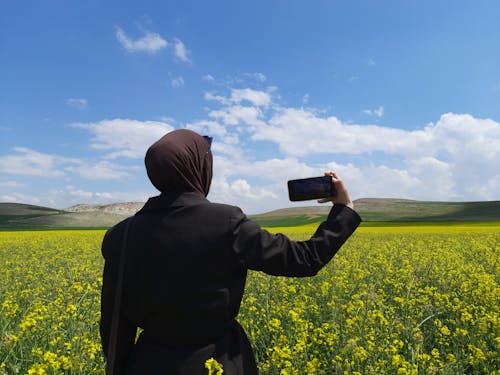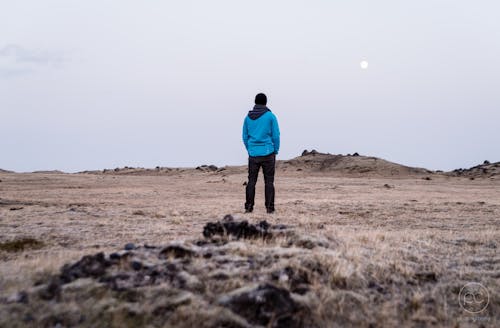In a world that’s more connected than ever, the idea of traveling alone might seem daunting at first. The fear of loneliness, safety concerns, and the uncertainty of venturing into unknown places without the comfort of a travel companion often deter people from embarking on solo journeys. Yet, solo travel offers a transformative experience that can change your perspective on life, self-reliance, and the world around you. For those on the fence about whether solo travel is for them, here’s why everyone should consider experiencing it at least once.
The Freedom to Do What You Want, When You Want

One of the most compelling reasons to travel alone is the unparalleled freedom it provides. When you travel with others, there are always compromises to be made—choosing where to eat, what activities to do, or what sights to see. Solo travel eliminates these decisions entirely. You are in control of every aspect of your trip. If you feel like spending the entire day at a museum or wandering aimlessly through a city, it’s entirely up to you. The lack of pressure to accommodate someone else’s preferences allows for a deeper connection to your own desires and interests.
For those who thrive on spontaneity, solo travel offers the ultimate freedom. You can follow your instincts, change plans on a whim, and take detours without worrying about holding up someone else. The sheer flexibility can be liberating, enabling you to focus on what excites you in the moment, rather than adhering to a rigid itinerary.
Personal Growth and Self-Discovery
Traveling alone often brings about a profound sense of self-discovery. Without the distractions of familiar faces or the comfort of relying on others, you’ll find that solo travel pushes you outside of your comfort zone. It challenges you to navigate new places, communicate in different languages, and make decisions independently. This constant problem-solving and decision-making can lead to increased confidence, a deeper understanding of your strengths, and a greater appreciation for your own capabilities.
Many solo travelers report feeling more empowered and capable after their trip, having learned to trust their intuition and make choices without second-guessing. Being responsible for yourself and your actions in a foreign environment forces you to confront both your fears and desires, leading to personal growth that would be hard to achieve in a group setting.
Building Connections with Strangers
One of the unique aspects of solo travel is the opportunity it provides to connect with people you might not otherwise meet. When you’re with a group, it’s easy to stick within your comfort zone and engage only with the people you already know. Solo travelers, however, are more likely to strike up conversations with locals, fellow travelers, and other individuals along the way.
These interactions can range from casual chats with a street vendor to deeper conversations with someone from a completely different culture. Such encounters often lead to enriching experiences, making the journey far more rewarding than simply seeing the sights. Solo travel can break down barriers and create bonds that transcend geographical and cultural differences, opening doors to new friendships and perspectives.
Embracing Independence
Independence is one of the most powerful aspects of traveling alone. You quickly learn how to rely on yourself, navigate unfamiliar places, and make decisions without seeking validation from others. This newfound autonomy extends beyond the trip itself, influencing how you approach life back home.
Solo travel gives you the chance to reclaim your independence, not just in the traditional sense of making decisions on your own, but also in the way you engage with the world. The self-sufficiency you cultivate while traveling can transfer to other areas of your life, making you more resilient, adaptable, and confident in the face of challenges.
Overcoming Challenges and Building Resilience
While solo travel is undeniably rewarding, it isn’t without its challenges. Navigating a new city without the comfort of a guide, dealing with language barriers, or managing unexpected situations all require a level of resilience and adaptability that can only be developed through experience. These moments of struggle, however, often provide the greatest sense of achievement.
When you overcome a challenge on your own—be it finding your way in a foreign city or solving a problem with limited resources—it can lead to an immense sense of pride and satisfaction. Solo travel teaches you to rely on your resourcefulness and to approach problems with a calm, clear mind. These lessons can carry over into many aspects of your life, allowing you to approach challenges back home with newfound confidence and composure.
Creating Unique and Unforgettable Memories

Solo travel often leads to more authentic, meaningful experiences. Without the distractions of a travel companion, you’re more likely to immerse yourself fully in your surroundings and the present moment. Whether it’s watching a sunset from a quiet beach, visiting a remote village, or enjoying a solo meal at a local restaurant, these moments are often more memorable when experienced alone.
Moreover, solo travel allows for a deeper connection to the places you visit. You can take the time to savor the small details—the scent of a new city, the sound of a bustling market, or the unique rhythm of a foreign culture—without the distraction of conversation or the pressure to keep up with others. These small, yet significant experiences are often what make solo travel so unforgettable.
Breaking Away from Social Norms
There is a societal expectation that travel is best enjoyed with others—friends, family, or partners. Yet, solo travel challenges this assumption. It invites you to break free from the pressures of fitting in or conforming to social norms. Many solo travelers report feeling a sense of liberation when they realize that they are free to travel for themselves, not to fulfill someone else’s expectations.
Traveling alone is also an opportunity to disconnect from the hustle and bustle of daily life. In today’s hyper-connected world, it’s easy to become overwhelmed by responsibilities, expectations, and the demands of social media. Solo travel offers a chance to unplug and reconnect with your own desires and priorities. It allows you to take time for introspection and relaxation, without the distractions that often accompany group travel.

Learning to Enjoy Your Own Company
One of the greatest gifts of solo travel is the opportunity to learn how to enjoy your own company. Many people are apprehensive about traveling alone because they fear loneliness. However, solo travel often teaches you how to appreciate solitude and find joy in your own presence.
When you travel alone, you have the freedom to do things at your own pace, without having to compromise or cater to anyone else’s preferences. This gives you the chance to explore your own interests and hobbies more deeply, whether it’s photography, writing, hiking, or simply observing the world around you. Over time, you’ll learn that being alone doesn’t have to mean being lonely. In fact, it can be a deeply fulfilling and enriching experience.
Conclusion
Solo travel is a transformative journey that offers more than just a chance to see new places. It’s an opportunity to grow personally, embrace independence, and create lasting memories. From the freedom to make your own choices to the resilience you develop in the face of challenges, solo travel has the power to change the way you see the world and yourself.
While it may feel intimidating at first, the rewards of traveling alone far outweigh the initial discomfort. Whether you’re seeking adventure, self-discovery, or simply a break from the everyday, solo travel is an experience that everyone should consider. After all, the journey is as much about the person you become along the way as it is about the places you visit.





